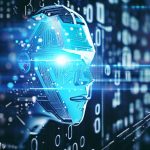Although one of the trendiest subjects in technology, artificial intelligence is still a largely untapped prospect for sourcing. Using intelligent computer algorithms, artificial intelligence (AI) enables recruiting in organizations to handle complicated challenges more quickly and successfully.
Numerous software programs, including expenditure analysis, contract management, and strategic sourcing, can use artificial intelligence (AI). AI-driven sourcing solutions have greatly improved processes for acquiring talent since they are now quicker and more effective. These solutions make use of artificial intelligence and machine learning to speed up the selection of applicants, as well as the evaluation of their credentials and suitability for a particular position.
The competitive nature of hiring today calls for a change to better sourcing techniques. The necessity for effective candidate sourcing, the increase in unqualified candidates brought on by social media, and rising candidate expectations have all paved the way for AI-powered solutions. These technologies are transforming the recruiting market by helping businesses find and work with top talent in a more focused, effective, and objective way.
AI sourcing technologies hold promise to improve process effectiveness while streamlining it. They can spot inactive job seekers who might not be actively looking for work but who might be ideal candidates for opportunities that are vacant. Additionally, by putting all of the emphasis on credentials and experience, AI-driven sourcing may help remove prejudice from the hiring process, resulting in a fairer and more inclusive hiring process. Some of the areas where AI can play an important role in sourcing are discussed below.
Candidate Sourcing and Matching: AI-driven systems may search through enormous resume databases and web profiles to find suitable applicants who meet particular job requirements. These technologies improve the match between job advertisements and candidates by analyzing candidate profiles and job descriptions using natural language processing (NLP).
Automated Screening: By comparing candidate credentials, competencies, and experience to set standards, AI can automate the first screening procedure. As a result, HR workers spend less time manually analyzing resumes and may instead concentrate on more important duties.
Making recruiting decisions: Through the use of predictive analytics, AI can identify applicants who, given their qualifications and track records, are more likely to succeed in a certain position. Making better-informed recruiting decisions is aided by this.
Better candidate experience: A better candidate experience is possible thanks to AI-powered chatbots and virtual assistants that can interact with applicants while they fill out their applications, answer their inquiries, set up interviews, and give them updates. By doing this, you may improve the hiring process overall and keep prospects interested.
Reduced prejudice: By concentrating on objective factors like credentials and abilities, AI can help decrease unconscious prejudice in recruiting. Additionally, it can spot and highlight potential biases in job advertisements and candidate evaluations, enabling businesses to build more inclusive and varied workforces.
Faster Response Times: AI-driven solutions can immediately determine a candidate’s availability and connect them with job positions, cutting down on the time it takes to set up interviews and extend offers.
Continuous Learning: The source and matching algorithms used by AI are continuously improved. Better recruiting outcomes are produced over time as it grows more adept at identifying the top applicants for particular positions as more data is processed and feedback is gathered.
Cost savings: AI-driven sourcing solutions may drastically lower recruiting costs, including advertising expenditures and administrative overhead, by automating time-consuming procedures and enhancing the efficiency of the hiring process.
Scalability: These solutions are excellent for organizations with a range of recruiting requirements since they grow readily to accommodate large numbers of job applications.
Data-Driven Insights: AI-driven sourcing strategies produce insightful data about the employment process. This information may be used by HR professionals to improve their talent acquisition plans and make informed choices.
Artificial intelligence (AI) sourcing has been a game-changer for contemporary recruitment attempts amid this complexity and rivalry. AI-powered solutions are made to effectively comb through multiple platforms and locations to find potential candidates that fit the precise requirements established by recruiters. These cutting-edge algorithms can examine enormous datasets, evaluate a candidate’s credentials, and even forecast their chances of succeeding in a certain position.
Are you intrigued by the limitless possibilities that modern technologies offer? Do you see the potential to revolutionize your business through innovative solutions? If so, we invite you to join us on a journey of exploration and transformation!
Let’s collaborate on transformation. Reach out to us at open-innovator@quotients.com now!






